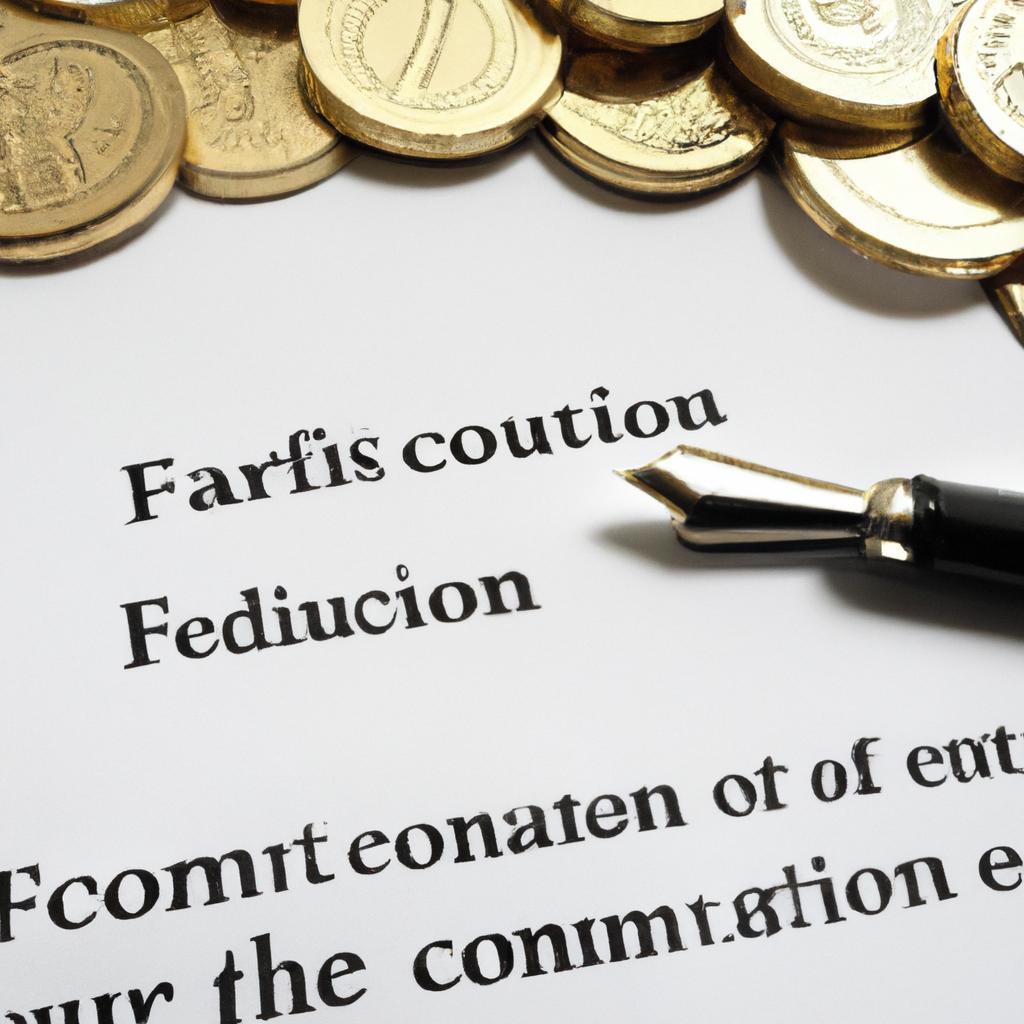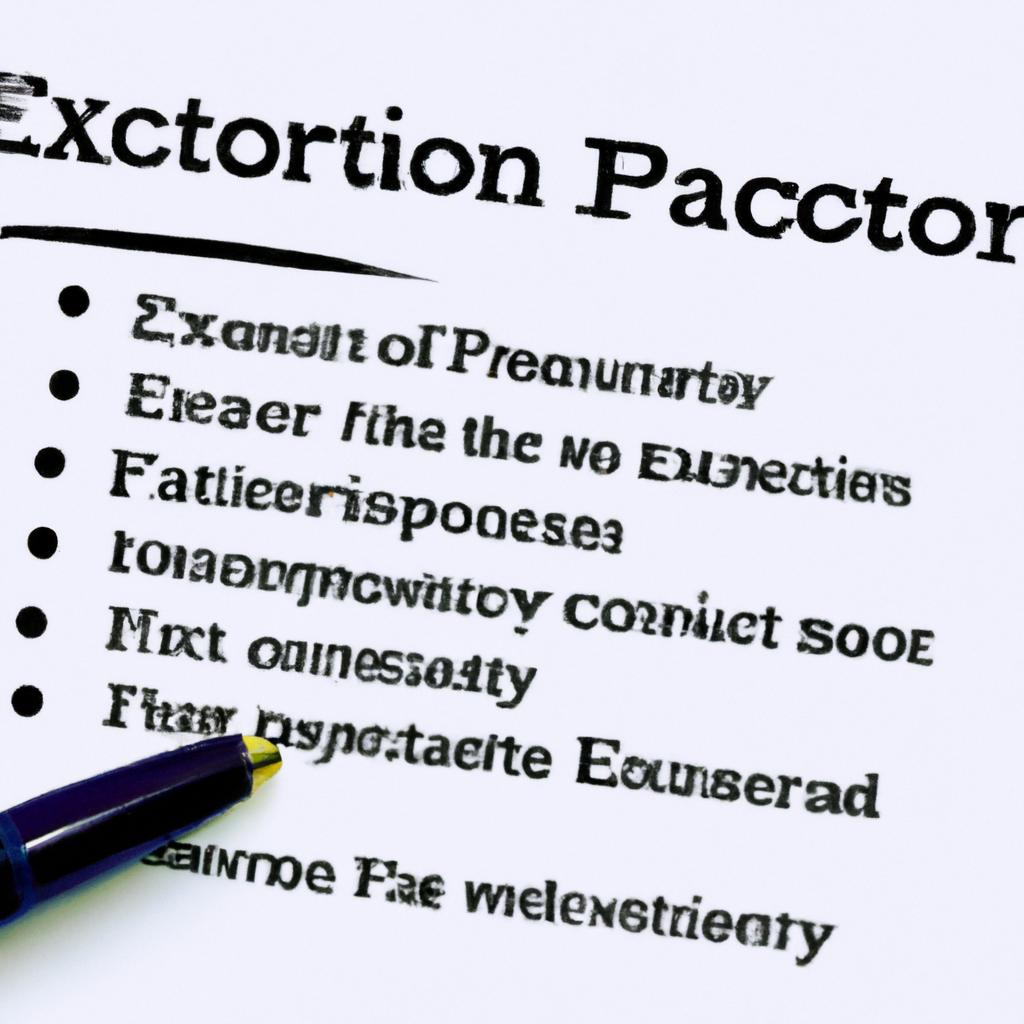As seasoned practitioners of estate planning and probate law, the intricacies of compensating an executor of a will are a topic that frequently arises in our practice at Morgan Legal Group in New York City. Determining a fair and reasonable compensation for the individual tasked with overseeing the administration of an estate is a crucial aspect of the probate process. In this article, we will delve into the factors that influence how much to pay an executor of a will, providing insight and guidance for those navigating the complexities of estate administration.
Determining a Fair Compensation for an Executor
When , it is essential to consider the amount of time and effort that will be required to properly administer the estate. Executors are responsible for carrying out the wishes of the deceased, which can involve a significant amount of work. It is important to compensate them fairly for their services.
Factors to consider when deciding how much to pay an executor include:
- The size and complexity of the estate
- The amount of time required to complete the administration process
- The executor’s level of experience and expertise
- The prevailing rates for executor compensation in the state

Factors to Consider When Deciding Executor Payment
When deciding on the payment for an executor of a will, it is important to consider various factors to ensure fair compensation for their services. Some key factors to consider include:
- Complexity of the Estate: The more complex the estate, the more time and effort the executor will need to dedicate to managing and distributing assets. This complexity can range from the number of assets involved to any potential disputes among beneficiaries.
- Experience and Expertise: Executors with specialized knowledge or experience, such as financial or legal expertise, may command higher compensation for their services.
- State Laws: Each state has its regulations regarding executor compensation, so it is essential to be familiar with the legal requirements in the state where the will is being probated.
Additionally, the executor’s relationship with the deceased and beneficiaries, the time required to administer the estate, and any unusual challenges or circumstances should also be taken into account when determining fair compensation. It is advisable to consult with a legal professional specializing in estate planning to help navigate these factors and ensure the executor’s payment aligns with the laws and best practices of the state.

Guidelines for Calculating Executor Fees
When determining how much to pay the executor of a will, it is important to take into consideration various factors that can impact the final fee. Executor fees are typically calculated based on a percentage of the total estate value, but this amount can vary depending on the complexity of the estate and the amount of work involved. It is essential to follow specific guidelines to ensure the executor is compensated fairly for their time and efforts.
Some key guidelines to keep in mind when calculating executor fees include:
- Consider the size and complexity of the estate
- Review state laws and regulations regarding executor compensation
- Consult with legal and financial professionals for guidance
- Keep detailed records of the executor’s tasks and hours worked
| Size of Estate | Percentage Fee |
|---|---|
| Under $100,000 | 5% |
| $100,000 - $500,000 | 3% |
| Above $500,000 | 1-2% |

Ensuring Reasonable Compensation for the Executor of a Will
When determining how much to pay the executor of a will, it is crucial to consider the complexities of the estate, the time and effort required to fulfill the duties, and the executor’s level of experience and expertise. **Reasonable compensation** should be fair and just, taking into account the responsibility and accountability that comes with the role.
It is recommended to discuss compensation with the executor upfront and document the agreed-upon amount in the will. **Factors to consider** when determining compensation may include the size of the estate, the number of beneficiaries, the complexity of the assets, and any extraordinary circumstances that may arise during the administration of the estate.
Q&A
Q: How much should I pay my executor for handling my will after I pass away?
A: Determining the appropriate compensation for an executor of a will can depend on various factors.
Concluding Remarks
In conclusion, determining how much to pay an executor of a will can be a complex and sensitive issue. It is important to consider the time, effort, and responsibility involved in carrying out the wishes of the deceased. Consulting with legal professionals and discussing expectations openly with the executor can help ensure a fair and reasonable compensation arrangement. Ultimately, showing appreciation and gratitude for their hard work and dedication is key in navigating this delicate matter. Thank you for reading.
 The passing of a loved one is a difficult and emotional time. Not only must family members process their grief, but they also have the added burden of handling the deceased’s estate and assets. In most cases, the deceased would have appointed an executor in their will to oversee the distribution of their assets according to their wishes.
The passing of a loved one is a difficult and emotional time. Not only must family members process their grief, but they also have the added burden of handling the deceased’s estate and assets. In most cases, the deceased would have appointed an executor in their will to oversee the distribution of their assets according to their wishes.
Being an executor comes with a lot of responsibilities and duties, and it’s natural to wonder how much they should be paid for their time and effort. In this article, we will discuss how much an executor of a will should be compensated and the factors that can affect their compensation. Let’s get started!
Understanding the Role of an Executor
Before diving into the compensation aspect, it’s crucial to understand the responsibilities of an executor. An executor is a person (sometimes more than one) named in the will of the deceased to manage their estate. The executor is responsible for ensuring that all assets, including property, investments, and personal belongings, are properly managed and distributed to the beneficiaries mentioned in the will.
An executor’s role includes:
– Filing the will with the appropriate court or probate office
– Inventorying and valuing the assets and belongings of the deceased
– Paying any debts and taxes owed by the deceased
– Distributing the remaining assets to the beneficiaries named in the will
– Handling any legal proceedings, if necessary
Factors That Determine the Compensation for an Executor
There is no set amount that an executor of a will should be paid. Instead, the compensation depends on several factors, including:
1. State Laws
The executor’s compensation is usually determined by state laws, and it can vary significantly from state to state. Some states use a percentage system, where the executor receives a small percentage of the estate’s worth. Others follow a statutory fee system, where the executor is entitled to a specific fee based on the estate’s size.
2. Size and Complexity of the Estate
The bigger and more complex an estate is, the more time and effort an executor will have to put into managing it. For example, if the deceased owned multiple properties, investments, or businesses, it will require more time to value and distribute these assets. As a result, the executor’s overall compensation may be higher.
3. Time and Effort
The duties of an executor can be time-consuming, especially if they are not familiar with the process. From gathering information and dealing with legal and financial matters to coordinating with beneficiaries and settling disputes, being an executor takes a considerable amount of time and effort. Executors are entitled to be compensated for the hours they spend managing the estate.
4. Market Rates for Executors
In some cases, the will may specify a particular amount to compensate the executor. If not, the executor’s compensation should be reasonable and comparable to what another professional would charge for similar work. The market rates for executors can vary, depending on the state, but it is typically in the range of 1-5% of the estate’s value.
5. Relationship with Beneficiaries
The relationship between the executor and the beneficiaries can play a significant role in determining the executor’s compensation. If the executor and beneficiaries have a good relationship and agree on the terms, the compensation may be lower. However, if there are conflicts and disputes between the executor and the beneficiaries, it may require more time and effort, and the executor may be entitled to more compensation.
How to Determine a Reasonable Compensation
As mentioned earlier, the executor’s compensation can vary depending on the size and complexity of the estate, time and effort invested, and state laws. So, how do you determine a reasonable compensation for an executor? Here are some practical tips:
1. Consult an Attorney
An experienced estate attorney can provide valuable insight and guidance on determining the reasonable compensation for an executor based on the state laws and the estate’s size and complexity. It’s always best to seek professional advice to avoid any legal issues in the future.
2. Use a Fee Schedule
Some states have a fee schedule that outlines the compensation for executors based on the estate’s value. You can use this as a guideline for determining a reasonable compensation.
3. Consider the Executor’s Role
The executor’s role may differ depending on what is required by the will or the estate’s complexity. For example, if the executor has to deal with legal matters or manage rental properties, the compensation may be higher.
4. Keep Records
It’s essential to keep detailed records of the time and effort you have put into managing the estate. This can come in handy when determining the executor’s compensation, and it also ensures transparency with the beneficiaries.
In Conclusion
Being an executor of a will is an important and often challenging responsibility. It’s crucial to understand the duties and responsibilities that come with this role, and it’s equally important to determine a reasonable compensation for the executor’s time and effort. By considering the factors mentioned above and seeking professional advice, you can ensure a fair and equitable compensation for the executor of a will.






